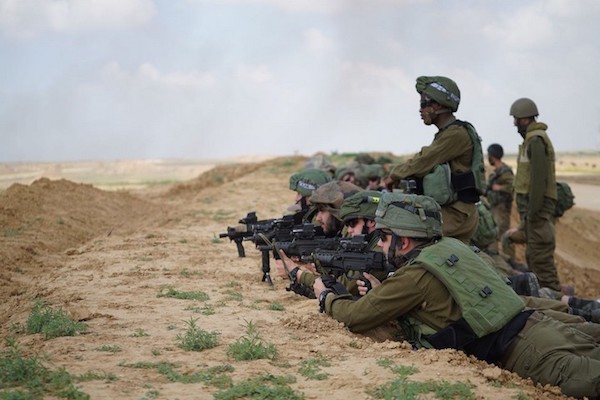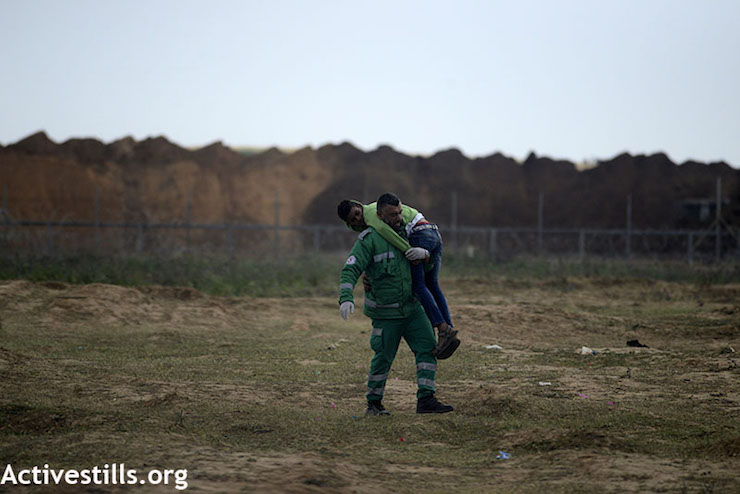I was on the border with Gaza six years ago. The same marchers, the same protest. Even the orders to open fire at crowds of people remained the same.
By Shai Eluk

I was there six years ago. It was Friday, March 30, 2012. Land Day on the border with Gaza. Demonstrations began after Friday noon prayers. A group of snipers had set up its post the previous night, while the rest of the unit stood armed with riot dispersal weapons, closer to the fence. The order was clear: if a Palestinian crosses the “buffer zone” — 300 meters from the fence inside the Gaza Strip, one may shoot at the legs of the “main inciters.”
This order, which never explained exactly how a soldier is meant to identify, isolate, and shoot a “main inciter” out of tens of thousands of demonstrators disturbed me then. It continued to disturb me this past weekend, after IDF snipers opened fire on Palestinian marchers at the Gaza border. “How can opening fire at a crowd of people be a legal order?” I asked my deputy company commander six years ago. I have yet to receive an answer.
What would have happened had these soldiers spent their entire service on the Gaza front? As soldiers who have had just finished our course, “Land Day” was the perfect opportunity for us to see some “action.” The same can likely be said about the soldiers who shot dead at least 16 protesters on Friday. Their commanders were most likely also excited.
I am certain that had we been called up to do the same thing year after year, something would have changed. After all, this situation — every year, at the same time, at the same place, with the high likelihood that a Palestinian, not an Israeli, would lose his life — makes sense only the first time around, especially in the eyes of a fresh-faced 18-year-old.
But any soldier who would return to the Gaza border every year, who would see Palestinian after Palestinian fall to the ground, could figure out a better solution to the situation. Any soldier who would return to see the same marchers nearing that fence — which symbolizes, above all else, that death may not be such a bad alternative — understands that there must be an alternative.
One of my friends killed a demonstrator on the border with Gaza. I am part of a group that carries this death on its shoulders. The only difference between myself and my friend is chance. Had I been sent to the sniper course rather than the medics course, I would have been that shooter. The entire group lent its support to the operation, and the blood — despite the fact that we have all been released from the army — is still on our hands. I doubt if anyone but myself remembers.
Every year is a new one, and at the border with Gaza arrive new commanders and new soldiers — fresh blood and a leadership with short-term memory.

Soldiers have a privilege. Every three or six months they move to a different area. They see only a fraction of Gaza’s despair, but before they even have a chance to process or think about it, they move on to see the despair in Hebron, Ramallah, and Nablus.
The soldier knocks on the Abu Awad family’s door in the middle of the night only once. He fires at protesters on Land Day only once. He carries out arrests for a few months. After that he is replaced by another soldier. Then he is released.
The residents of Gaza and the West Bank are marking 50 years under occupation. But they will not be replaced, and no one is coming to release them or help shoulder the burden. For us soldiers, everything is temporary. For them, it is permanent.
Shai Eluk is a former soldier in the Nahal Brigade and an activist with Combatants for Peace. This article was first published in Hebrew on Local Call. Read it here.
